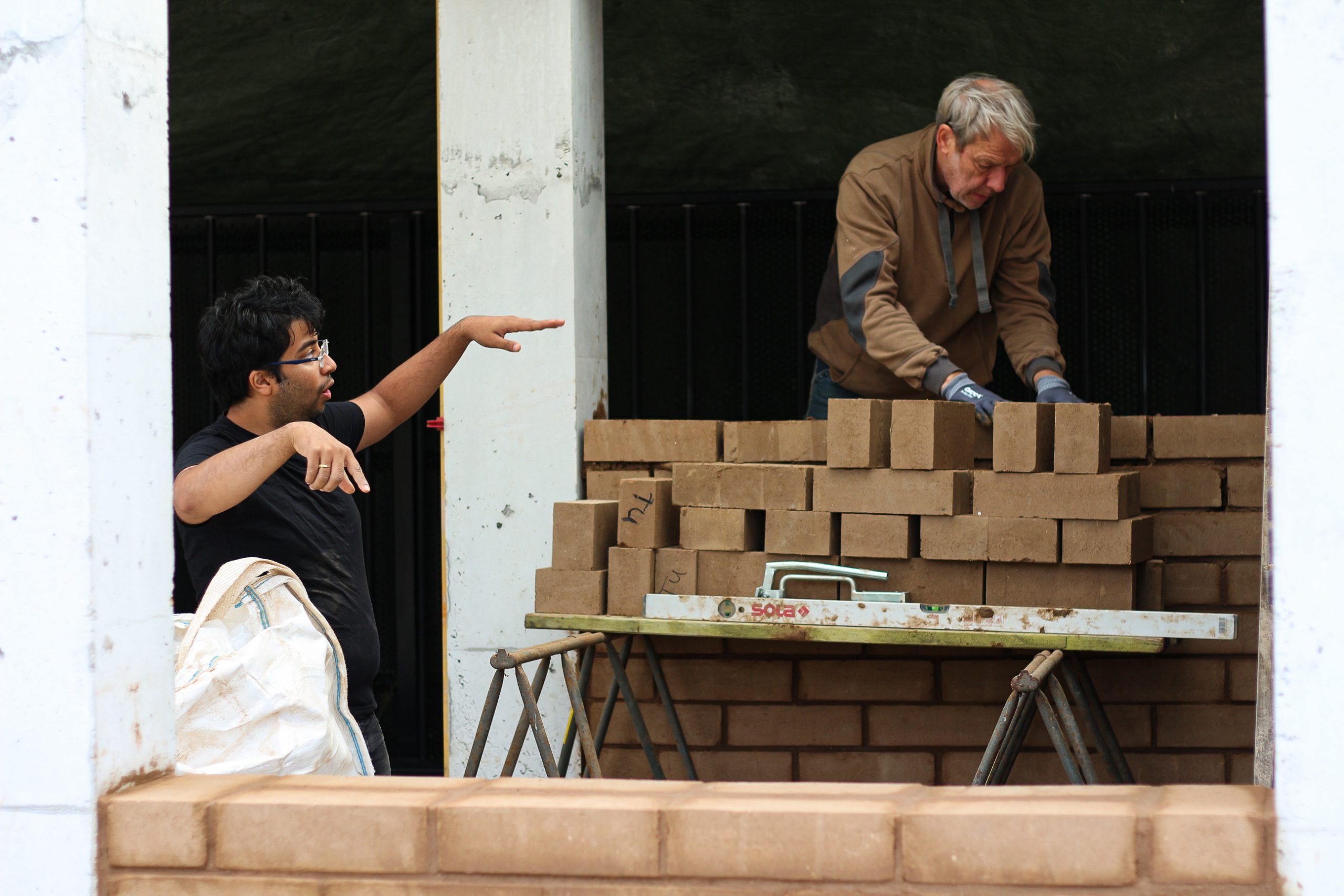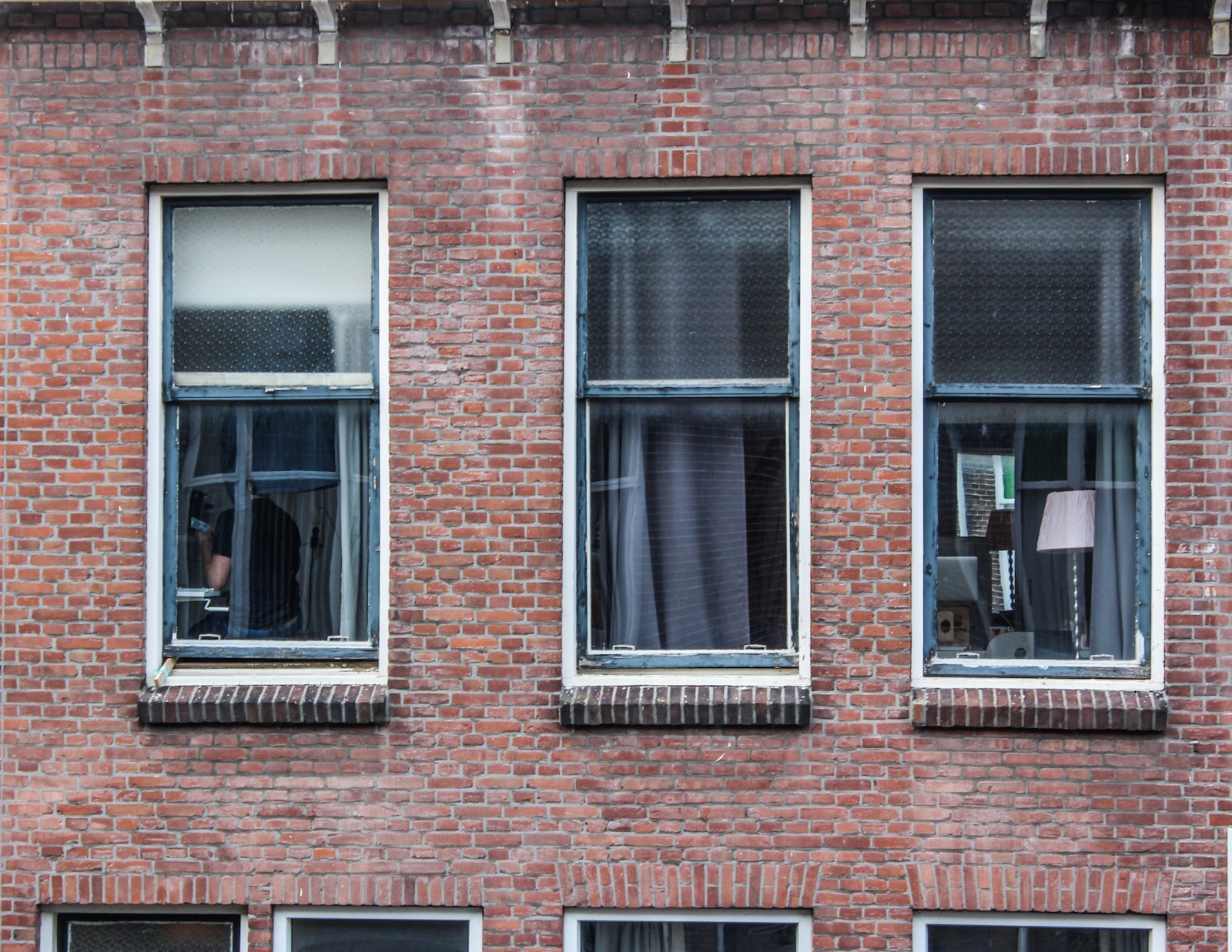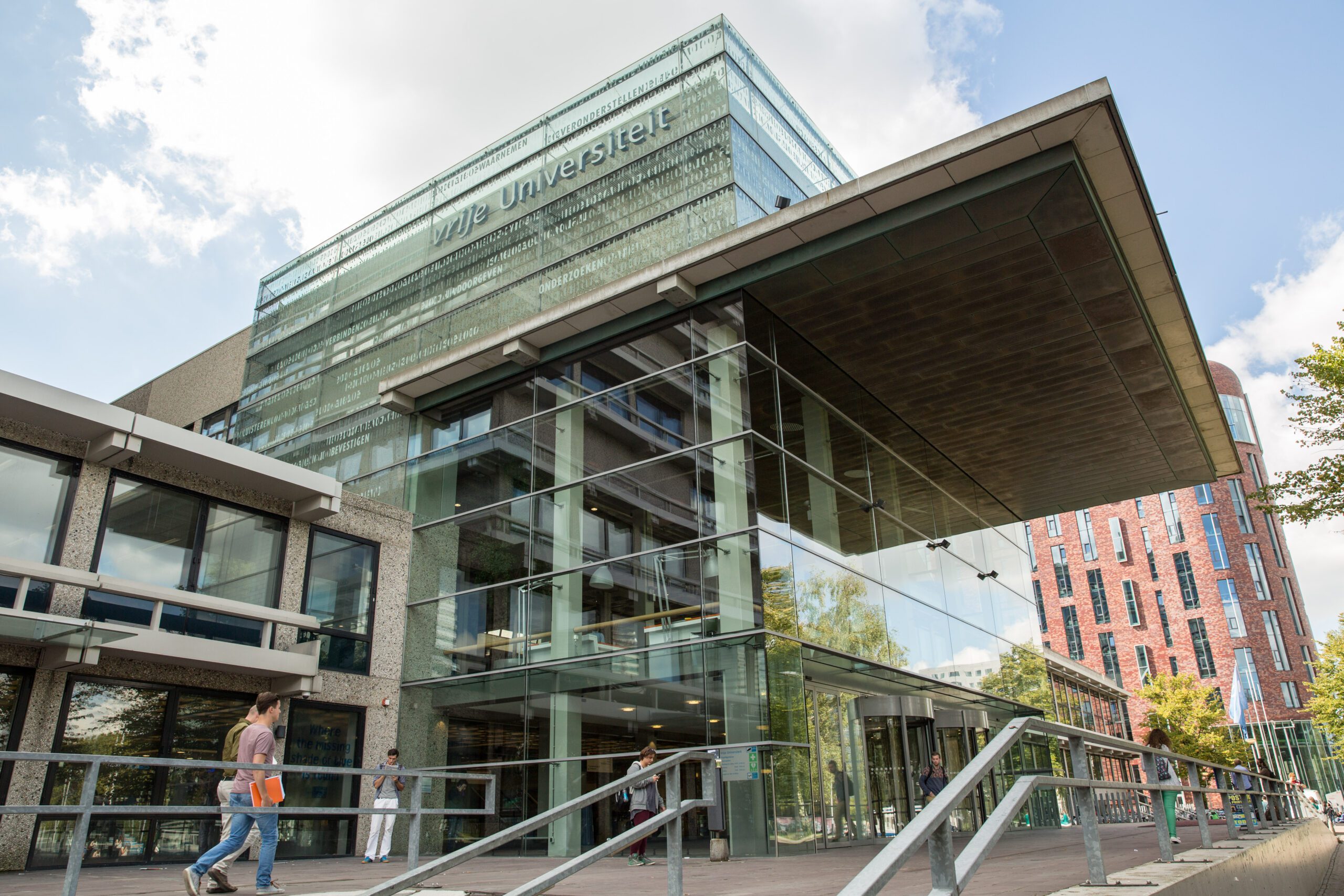Short news
What good are innovative new materials if they cannot be used? The new BioBuild Lab at the TU Delft Green Village aims to change that, with construction that started this week.
The construction sector is highly polluting. Biobased materials, which are derived from renewable biological resources, should offer a solution. But how well do these materials perform in practice? This should become clear in the new test facility.
From the end of 2026, architecture students and researchers, as well as external parties, will be able to use it for experiments, certification tests and the construction of scale models. In addition, the building itself is also part of the experiment, with biobased materials being tested directly in real-life conditions.
Dutch science funding organisation NWO awards Vici grants to 39 leading researchers. Ten percent of all applications are approved. Delft, like VU University Amsterdam and Wageningen University, has been awarded four grants.
The Vici grant of up to 1.5 million euros is intended for “highly experienced” scientists. The money will enable them to further expand their research groups and conduct innovative research.
The winners are conducting research into a wide variety of topics. These include hidden viruses in insects, prostate cancer and the so-called “welfare wall”: people with little money who do not make use of government services such as benefits, even though they are entitled to them.
10 per cent awarded
Of the 384 preliminary applications received by NWO for the Vici round 2025, 10 per cent will be awarded – 2 percentage points less than last year. Eighteen grants will go to women and 21 to men.
In Delft, there are three projects aimed at making the invisible visible and one into ultimately creating large quantum networks:
- Experimental astronomer Akira Endo (EEMCS) is working on a new instrument for a telescope in Chile to unravel how matter clumped together and how the first stars were formed.
- Arjen Jakobi (Bionanoscience) is developing new imaging techniques to follow, step by step, how our cells protect themselves against dangerous bacteria.
- How do cells form a human organ? David Maresca (Imaging Physics) will investigate this using ultrasonic waves.
- Tim Taminiau (QuTech) wants to build a new type of quantum bit based on silicon carbide to create everlasting entangled nodes and ultimately build large quantum networks.
The Vici grants, together with the Veni and Vidi grants, are part of the NWO Talent Programme. They are intended for scientists at different stages of their careers.
HOP, Hein Cuppen
On Wednesday, Geothermie Delft’s geothermal power plant officially became operational. From now on, part of the campus and three DUWO student flats (Mijnbouwplein, Stieltjesweg and Michiel de Ruyterweg) are now heated with hot water from deep underground.
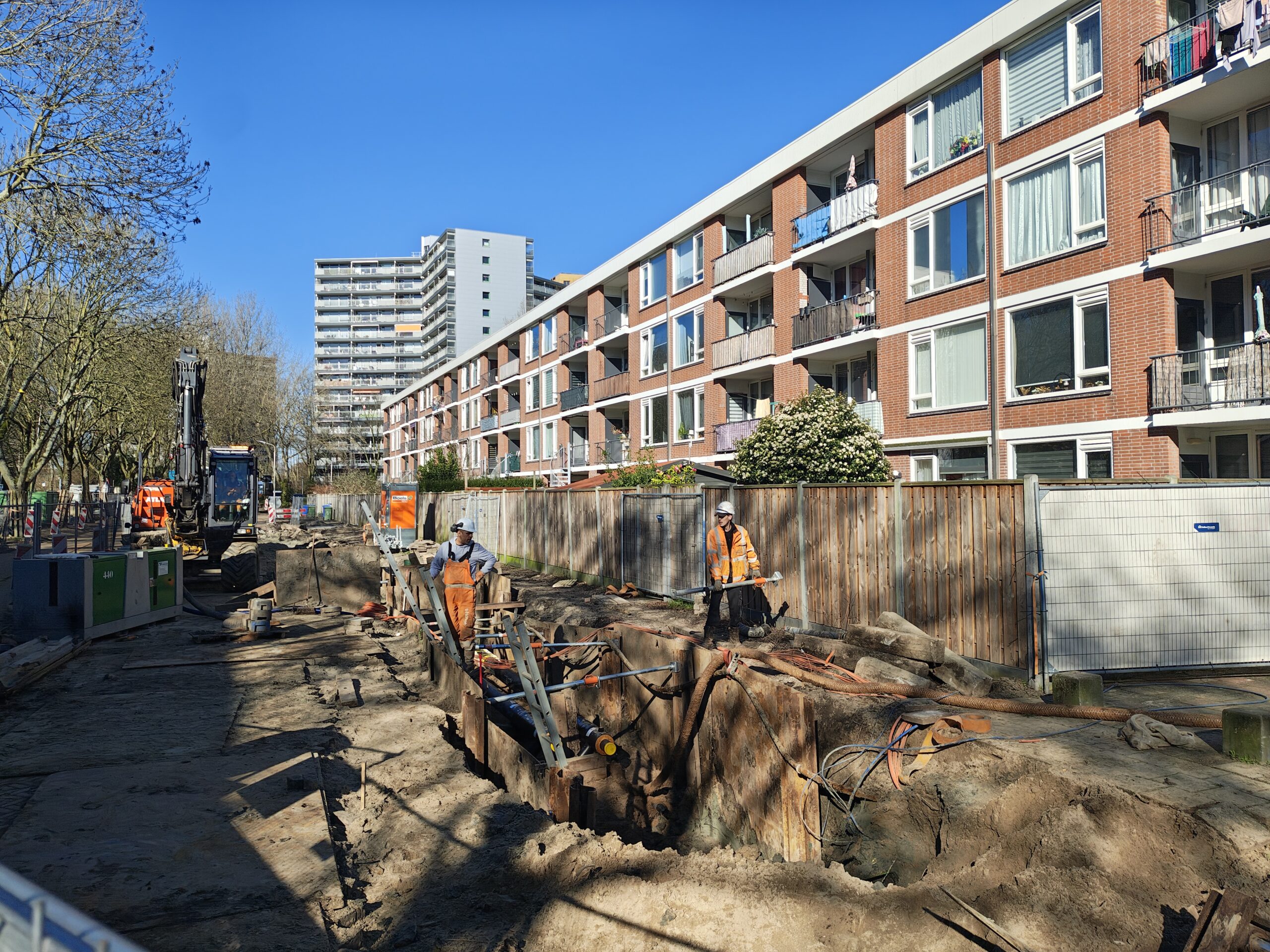
“Opening a new heat source in this weather,” laughs Maaike Zwart, Delft’s Alderman for Sustainability, on the sunny Wednesday afternoon at the geothermal power plant on campus. There is no symbolic pressing of a button, no champagne or cheering crowds. The handful of journalists who have turned up are not allowed into the plant. There is little to see in front of the building where the press programme is taking place. Yet something truly fascinating is happening beneath our feet: water at a temperature of 78 degrees is being pumped up from a depth of around 2 kilometres underground. A sustainable way to heat the campus and three student complexes. “And affordable,” emphasises Zwart. “As an alderman, I can say that without hesitation.”
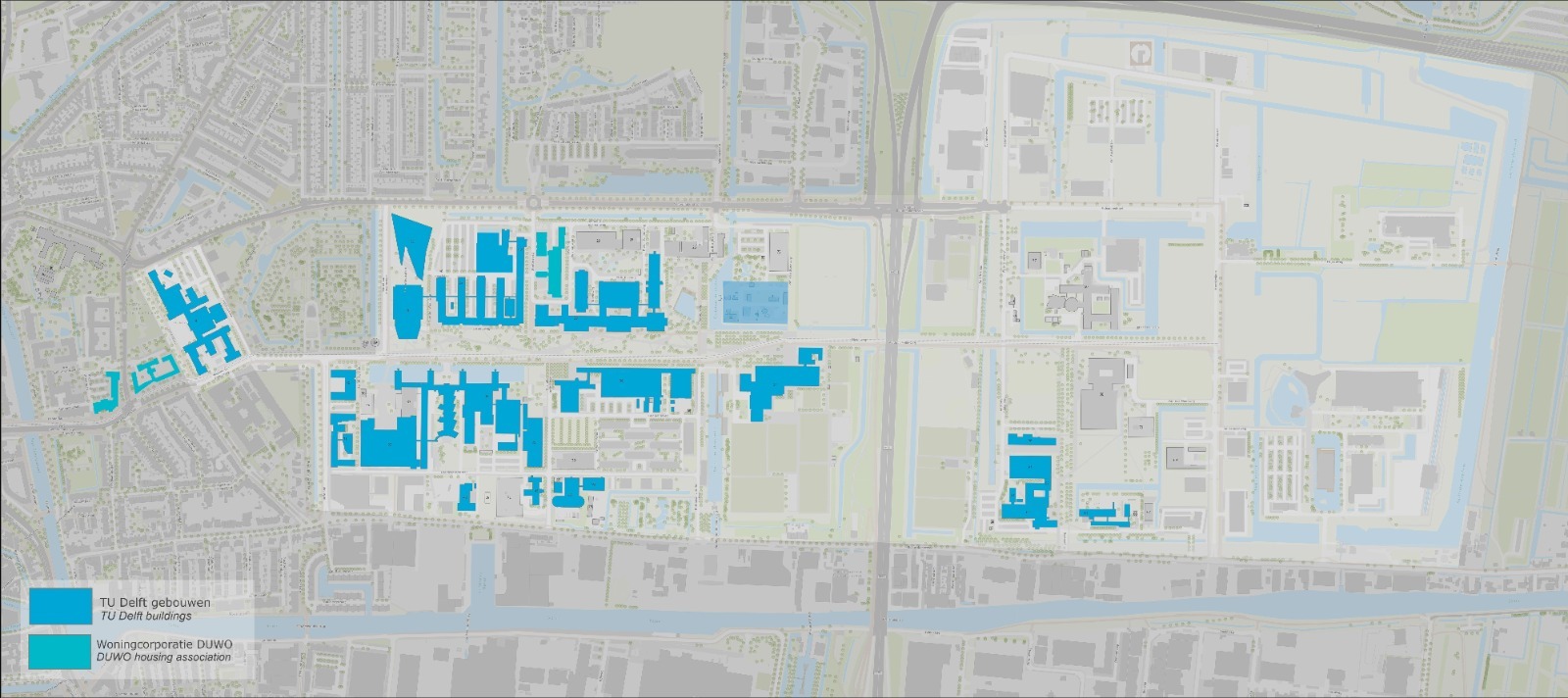
Fortunately, just a few neighbourhoods away in Buitenhof, it is possible to watch the excavation work. Long pipes are ready to be inserted into the ground. Men in orange vests are busy digging trenches. Here, the next neighbourhood is already being prepared for connection to the geothermal network. Soon, another 6,000 rental properties will be connected, with a final target of 15,000 homes in total.
The Delft geothermal power plant will not only serve as a source of heat but also as a source of scientific data. In this way, the university hopes to contribute to the expanding knowledge, including its application elsewhere in the Netherlands. Until now, geothermal energy has mainly been used in greenhouse horticulture, but new measurements should provide insight into how geothermal energy can be used more efficiently, reliably and sustainably on a broader scale. “Geothermal energy is less interesting for new buildings,” says NetVerder director Koen Verbogt. “Those homes are better insulated. It is precisely the older, less well-insulated homes with a collective heating network that benefit greatly from the use of geothermal energy.”

To help reduce the housing shortage in the Netherlands, Chief Government Architect Francesco Veenstra wants to revive an old solution: dividing a single house into multiple residential units, a practice known as woningsplitsing (housing subdivision). This approach should provide short‑term relief for the housing market and create more living space for young people, he said on Wednesday in the Dutch television programme Nieuwsuur.
According to Veenstra, terraced houses — which make up a large part of the Dutch housing stock — are particularly suitable for this. He believes housing subdivision is especially a solution for young people and people in their twenties who are looking for a place to live. “It’s really meant for people who have moved back into their parents’ home,” he said. The Chief Government Architect, an independent adviser for the government, appeared on the programme to discuss the current cabinet’s plans for the Dutch housing market.
Delft made housing subdivision more difficult
His remarks are notable because the municipality of Delft actually made housing subdivision more difficult in 2021 and introduced regulations in 2017 to curb the splitting of homes into student rooms. The reason was the large number of single‑family homes being converted into student accommodations by investors and landlords. Research by Delta at the time showed that most subdivisions took place in the Voorhof district. A portion of the single‑family homes in this neighborhood has three floors, making them particularly suitable for creating multiple studio apartments.
Young people are more concerned than other age groups about the impact of artificial intelligence on their work. Just over half of them believe that AI could partly or even fully take over their jobs, according to figures from Statistics Netherlands (CBS).
The rise of AI is creating considerable uncertainty in the labour market. What will the future of work look like? And what should you study to prepare for it? No one can predict this exactly, but it is possible to ask employees themselves how they use AI and what they expect.
Some 45 per cent of employees with higher professional education (HBO) or university (WO) degrees expect that artificial intelligence could take over part of their work. Four per cent even believe that their entire job could be carried out by AI. Statistics Netherlands draws this conclusion from a representative survey of the workforce.
‘Prepare students for the future’
In general, young people are the most worried about the influence of AI on their jobs. Just over half think their job could be wholly or partly taken over by AI. Ten per cent of employees under the age of 25 are very concerned about this, Statistics Netherlands reports. Among other age groups, this figure is six to seven per cent.
Student organisation Interstedelijk Studenten Overleg (ISO) is calling on the education sector to make greater efforts in teaching artificial intelligence. “If we want to prepare today’s students for the future, AI and digitalisation need to receive more attention in our education,” says chair Sarah Evink. (HOP, OL)
Students, staff and other interested parties can play chess against FIDE master Anna-Maja Kazarian at sports and culture centre X on Sunday 8 March, International Women’s Day. The Netherlands’ second-highest ranked female chess player will compete in a simultaneous exhibition against thirty opponents at once.
A simultaneous exhibition, or ‘simul’, is an event in which an experienced player takes on multiple challengers at the same time. Kazarian has held the title of FIDE Master since 2015, one of the higher distinctions awarded to players by the international chess federation FIDE. She also reaches tens of thousands of followers on social media, where she livestreams games or provides commentary.
International Women’s Day
The simul is being held on International Women’s Day, student program makerJesse Poort explained. “We want to raise awareness of chess among women at TU Delft. Previous chess events have been popular but attracted few female participants. With this event we hope to change that.”
- Chess simul with Anna-Maja Kazarian
Sunday 8 March, 13.45 – 18.00
Sports and culture centre X, Body & Mind room
Cost: €5 for students, €9 for staff and €10 for non-TU participants.
Before the simul, Kazarian will give a presentation about her development as a chess talent and about playing at the highest level.
Visitors to the Delft Career Days have been surrounded by a pungent odour all day. The cause is an oily substance on the entrance doors to the Aula, which has soaked into the carpet.
According to the Delft Career Days board, the substance was smeared on the doors upon their arrival at the Aula Monday morning. Chair Merel Vooijs does not know who did it. According to her, no message has been left. “There is CCTV footage, but we haven’t seen it yet.”
Monday is the first of three so-called Orientation Days. Hundreds of companies are present to promote themselves to students. According to Vooijs, ‘everyone is happy’, despite the stench. She speaks of a ‘great success’.
Criticism

“It’s been smelling like a stink bomb went off here all day,” said the person who tipped Delta off about the odour. Despite this, everyone is going about their business as usual. Delta itself cannot enter the private event because the board did not give permission in advance.
The Delft Career Days have been the target of criticism before. In recent years, activists have demonstrated against the presence of fossil fuel companies and companies affiliated with the military industry. Last week, Delta reported that TU Delft had given the names of five End Fossil activists to the police prior to the Delft Career Days in 2024. This led to much outrage and questions for Mayor Alexander Pechtold.
No data from end users of business accounts was leaked during the cyberattack on telecom provider Odido. This means that no staff data or user data belonging to TU Delft employees was affected, the university announced on its intranet.
On Thursday, Odido announced that cybercriminals had gained access to a file containing the details of 6.2 million accounts through a cyberattack. This includes names, addresses, email addresses, telephone numbers, dates of birth and bank account numbers of customers. No passwords, call data or billing information were involved. Customers of Ben, which is part of Odido, may also have been affected.
Some TU Delft employees have been affected via their private subscriptions. TU Delft advises this group to be extra vigilant for phishing attempts or other fraudulent activities. Odido provides advice and information about the leak on this webpage (in Dutch).
The student council of VU University Amsterdam is in crisis due to the conflict surrounding the Vrijmoedige Studentenpartij (VSP). According to reports in newspaper Het Parool, VSP founder Marlon U. has been aggressive and intimidating on campus for years. Among other things, he knocked a student to the ground after the student confronted Marlon U. for singing a Nazi song.
Several student council members refuse to meet with the VSP member who sits on the student council too. Therefore the student council has not met for some time. In order to calm things down, the executive committee of the student council asked that the Marlon U. issue not be discussed “externally”. The party’s supporters interpreted this as a gag order. This led to a great deal of anger and heightened emotions, after which the board decided to resign.
A number of VSP members from Utrecht, the University of Amsterdam and Leiden have now also turned their backs on their far-right party.
On the VU campus, there are protests against the “ineffective” actions of the Executive Board. They want the board to be clearer about how it will act against misconduct.
The VU responds that measures have indeed been taken, in the form of discussions, warnings and a suspension. “Any form of intimidation, discrimination, violence or exclusion is unacceptable”, a spokesperson said.
HOP, Olmo Linthorst
Quantum computers use qubits, which can take on many values and can be zero and one at the same time. The promise is that this enables them to calculate much faster than a conventional computer. Although quantum computers currently often consist of only a handful of interconnected qubits, eventually there will need to be many thousands or even millions. It is important to know how well the individual qubits perform.
That is why researchers at QuTech have now developed a method that allows them to test 1058 qubits at once, in theory. To do this, they built a new type of test chip: QARPET (Qubit-Array Research Platform for Engineering and Testing).
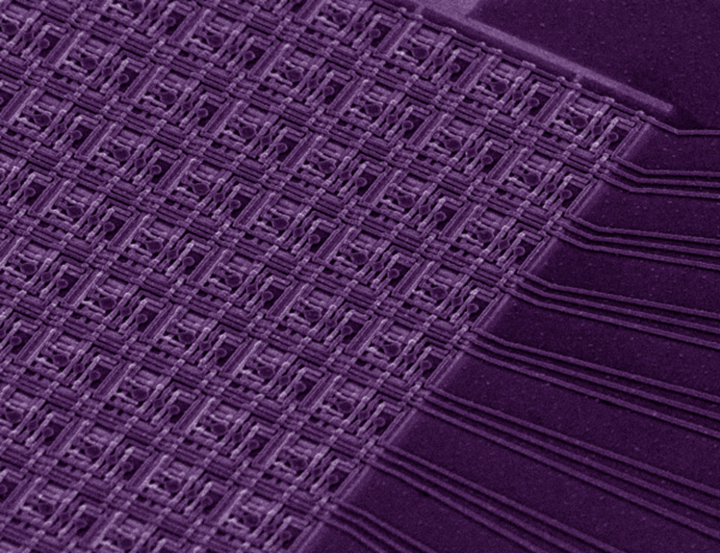
The chip is so compactly woven that under a microscope it resembles a woven carpet, but on a nanoscale.
“When I designed the first layouts, I honestly did not expect them to work,”says Alberto Tosato, who was responsible for the engineering. “It pushes the limits of nanofabrication.” The research is described in Nature Electronics.


